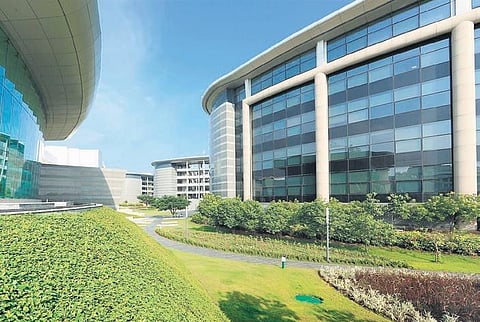

COVID-19 has changed the way we used to imagine, ideate and implement things. This transformation is set to alter the long followed practices in the long run and architecture is not untouched from this. Architects and designers believe COVID will result in lack of skilled labour, budgets and economic turmoil. “I see a change in perspective in the long run. I am hoping the industrial sector will get a push.
A lot of construction activity will happen outside the site, and newer construction techniques will be implemented. Pre-engineered structures would be preferred over the conventional ones, and machine-based processing will be the norm,” says Dinesh Panwar, Urbanscape Architects Principal Architect.
Homes, offices, roads and essential structures will not cease to be built, but the design will have to be rethought.
Edifice Consultants Pvt Ltd Director Shaon Sengupta says, “The role of design is to adapt. These are changing times and design needs to support and assist the changes in the most innovative and effective manner, while upholding the priorities of being human and creating spaces which nurture our inherent characteristics.”
Envisage Projects Design Head and Partner Meena Murthy Kakkar thinks that this pandemic will have a profound effect on our built world. “It will redefine the notions of what is normal within an industry. And it is pushing forward promising but still emerging trends like prefabrication and tele-commuting,” she adds.
Experts feel that people might again go back to compact homes rather than the ones with huge footprints, in the private residential category. “There will, however, be an increase in demand for farmhouses which are self-sufficient in terms of the resources, electricity and water and handling of waste within the site premises,” Panwar adds.
Some planning standards for the design of spaces will certainly shift to better reflect a new way of pursuing life that will include greater personal space. There will be a greater focus on incorporating features that decrease human touch.
Hoping for a better future, Panwar adds, “People will explore more voice-activated controls along with automation. Already, lifts are being operated using it. UV light technology will be used to kill the virus in the air-conditioning systems. Besides this, solar energy, recharge water storage facility, rainwater harvesting, and kitchen garden will be put into use for designing homes sustainably and sufficiently.
There will be greater reliance on collaboration by virtual means rather than actual means and large scale adoption of tools, which help accomplish this, Kakkar believes. “The clientele will also be hesitant to travel, which will make travel a strategic activity. There will also be a focus on hygiene at construction sites, and a serious look at modular construction as a whole.”This is the time for architects to rethink their methodologies and advocate for a future where the world is in-sync with nature for a more resilient and healthy way of living.